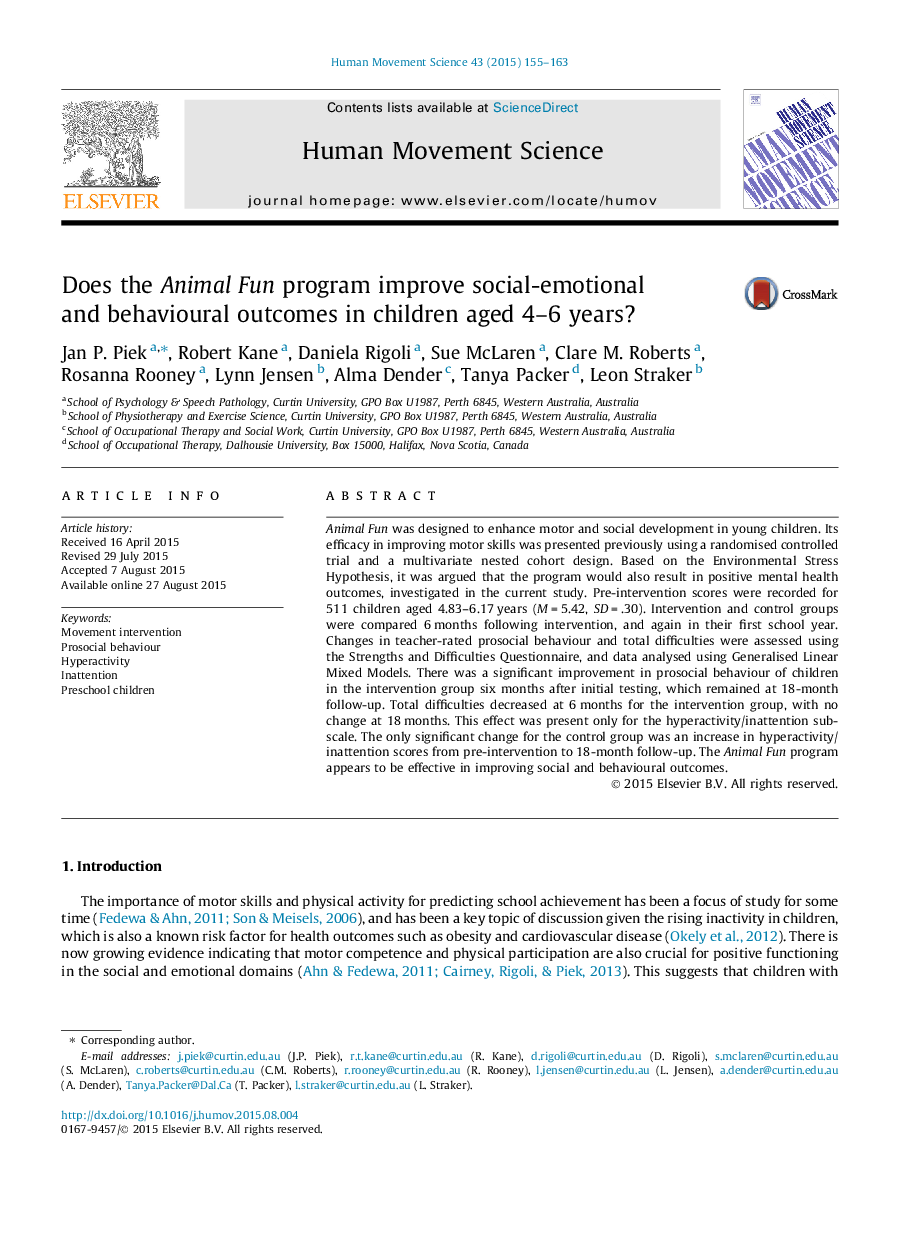| Article ID | Journal | Published Year | Pages | File Type |
|---|---|---|---|---|
| 928273 | Human Movement Science | 2015 | 9 Pages |
•The Animal Fun program significantly improved pro-social skills.•The Animal Fun program significantly reduced hyperactivity/inattention symptoms.•The findings provided partial support for the Environmental Stress Hypothesis.•The intervention had a stronger effect on the pro-social skills of girls than boys.
Animal Fun was designed to enhance motor and social development in young children. Its efficacy in improving motor skills was presented previously using a randomised controlled trial and a multivariate nested cohort design. Based on the Environmental Stress Hypothesis, it was argued that the program would also result in positive mental health outcomes, investigated in the current study. Pre-intervention scores were recorded for 511 children aged 4.83–6.17 years (M = 5.42, SD = .30). Intervention and control groups were compared 6 months following intervention, and again in their first school year. Changes in teacher-rated prosocial behaviour and total difficulties were assessed using the Strengths and Difficulties Questionnaire, and data analysed using Generalised Linear Mixed Models. There was a significant improvement in prosocial behaviour of children in the intervention group six months after initial testing, which remained at 18-month follow-up. Total difficulties decreased at 6 months for the intervention group, with no change at 18 months. This effect was present only for the hyperactivity/inattention subscale. The only significant change for the control group was an increase in hyperactivity/inattention scores from pre-intervention to 18-month follow-up. The Animal Fun program appears to be effective in improving social and behavioural outcomes.
